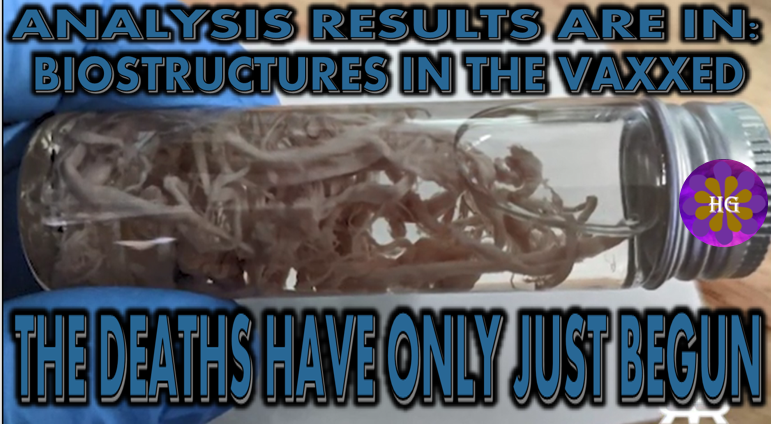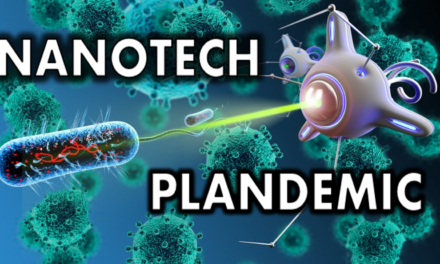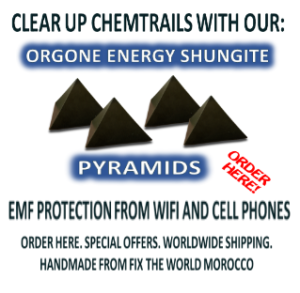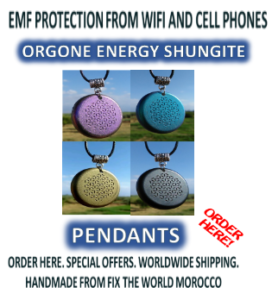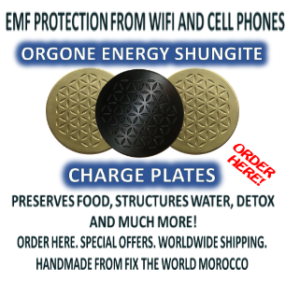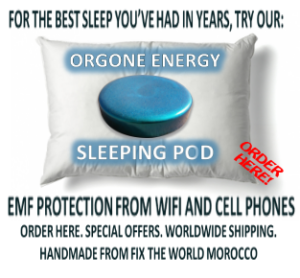In the final segment of the Infowars Show on 23 August 2022, Mike Adams shared laboratory results regarding the composition of post-vaccine clots as well as the composition of one of the Covid “vaccines” which includes trace amounts of industrial metals and elements.
Adams’ laboratory is accredited by the International Organisation for Standardisation (“ISO”). “So, anything that we produce in terms of lab results can be entered as evidence in a court of law anywhere in the world,” Adams said.
Adams conducted inductively coupled plasma mass spectrometry (“ICP-MS”) on one of the “big three” Covid “vaccines” which he is not naming at this time. ICP-MS is an analytical technique used to measure elements at trace levels in biological fluids. It is known and used for its ability to detect metals and several non-metals in liquid samples at very low concentrations.
“What we found in these tests was quite shocking,” Adams said. When you take this vaccine out of the vial using a hypodermic needle and then inject it into the human body, here are some of the elements injected into your body:
- Vanadium
- Chromium
- Manganese
- Nickle
- Copper
- Arsenic
- Selenium
- Strontium
- Molybdenum
- Cadmium
- Lead
- Uranium
“These are present in trace amounts. These are industrial metals and they absolutely do not belong in any vaccine or anything that is injected into the human body,” Adams said. “You are looking at the mass poising of humanity, and I haven’t got to what’s in the clots.”
Adams then moved on to discuss what he has found in the clots that are killing people all over the world.
“Markers of life” or biomarkers are chemical elements found in molecules involved in life processes. These include some metals, for example, iron, magnesium, potassium and zinc. Blood should have these markers of life, Adams explained, but “the clot is lacking almost all those markers of life. [For example,] the clot only has about 4.4% of the iron in human blood. In other words, the clot is missing almost 96% of the iron that would be expected to be there if they were blood clots … These are not blood clots.”
“At the same time that these clots are missing the markers of life … the clots are higher in certain elements that happen to be more related to electronics or industrial machinery or conductive elements.
“We can confirm that the post-vaccine clots that are killing people, the clots that are being pulled out of the bodies of dead victims, post-vaccine, they contain over 5 times higher levels, concentrations, of tin … almost 50% higher levels of aluminium … and the clots are about 50% higher in sodium.
“The conclusion, these clots: number one, they’re not made of blood; number two, they are self-assembling structures – they are growing larger over time inside the blood; number three, as they are doing that they are somehow harvesting or absorbing or using metals or conductive elements from the blood.
“As people like Steve Kirsch and Ed Dowd are noticing, a whole lot of people are dying after the vaccines right now. But what I’m here to tell you is that is a fraction of what’s coming. The deaths have only just begun … Eventually many of those people who have been injected, if we don’t find a way to reverse this, many of those people are going to die from these vaccine clots.”
Click on the image below to watch the video on Bitchute.

25 August 2022 (38 mins)
You can watch the full Infowars 23 August 2022 Show titled ‘Lancet Medical Journal Confirms Covid Vax Causes Collapse of Human Autoimmune System’ HERE.
Further resources:
- American Scientists Confirm Toxic Graphene Oxide, and More, in Covid Injections, The Exposé, 30 August 2021
- Mike Adams’ full broadcast on the Alex Jones Show on 13 June 2022, featuring an urgent care doctor, embalmer Richard Hirschman and Dr. Jane Ruby, plus live microscopy of biostructure “clots” that are killing people, Natural News, 14 June 2022
- Scaffold Tissue and Nanowires Are Most Likely the Cause of Sudden Adult Death Syndrome, says Dr. Ariyana Love, The Exposé, 28 June 2022
- German Researchers Examine Covid “Vaccines” and Vaccinated People’s Blood and Say Stop Vaccinations Immediately, The Exposé, 13 August 2022
- Could Covid Injection Spike Proteins Be Producing Prions and Amyloid Structures Which Cause Neurological Disorders? The Exposé, 19 June 2022
- Mysterious Blood Clots on Natural News
- Globalists Scramble to Regain Control of Great Reset Collapse as World Awakens to NWO Interest in “Demonic Technology”, Steve Kirsch and Edward Dowd on Infowars, 22 August 2022
- Nature journal reveals how graphene can be used to assemble radio frequency electronics in biological systems, Natural News, 21 August 2022
You can start to find out more about each element by using the Royal Society of Chemistry’s (“RSC’s”) interactive periodic table HERE. For example, you can find the information in the table below on the elements Adams found in the “vaccines.” When it comes to the biological effects as noted by the RSC, bear in mind that these elements are being injected rather than ingested, inhaled or absorbed as the RSC would assume.
| Element | Element Symbol | Atomic Number (“ATNO”) | Uses as per Royal Society of Chemistry |
| Vanadium | V | 23 | About 80% of the vanadium produced is used as a steel additive. Vanadium(V) oxide is used as a pigment for ceramics and glass, as a catalyst and in producing superconducting magnets. |
| Chromium | Cr | 24 | Chromium is used to harden steel. About 90% of all leather is tanned using chrome. However, the waste effluent is toxic so alternatives are being investigated.
Chromium is an essential trace element for humans because it helps us to use glucose. However, it is poisonous in excess. |
| Manganese | Mn | 25 | Manganese is too brittle to be of much use as a pure metal. It is mainly used in alloys, such as steel.
Manganese (IV) oxide is used as a catalyst, a rubber additive and to decolourise glass. Manganese sulphate is used to make a fungicide. Manganese (II) oxide is a powerful oxidising agent and is used in quantitative analysis. It is also used to make fertilisers and ceramics. Manganese is an essential element in all known living organisms. Many types of enzymes contain manganese. For example, the enzyme responsible for converting water molecules to oxygen during photosynthesis contains four atoms of manganese. |
| Nickle | Ni | 28 | Nickel resists corrosion and is used to plate other metals to protect them. It is, however, mainly used in making alloys such as stainless steel. Nickel is used in batteries. Finely divided nickel is used as a catalyst for hydrogenating vegetable oils.
Some nickel compounds can cause cancer if the dust is inhaled, and some people are allergic to contact with the metal. |
| Copper | Cu | 29 | Most copper is used in electrical equipment such as wiring and motors. Copper sulphate is used widely as an agricultural poison and as an algicide in water purification.
Copper is an essential element. An adult human needs around 1.2 milligrams of copper a day, to help enzymes transfer energy in cells. Excess copper is toxic. |
| Arsenic | As | 33 | Arsenic is a well-known poison. Arsenic compounds are sometimes used as rat poisons and insecticides but their use is strictly controlled.
Arsenic is used as a doping agent in semiconductors (gallium arsenide) for solid-state devices. Surprisingly, arsenic can also have medicinal applications. Today, organoarsenic compounds are added to poultry feed to prevent disease and improve weight gain. |
| Selenium | Se | 34 | The biggest use of selenium is as an additive to glass. Selenium is used to make pigments for ceramics, paint and plastics. It is also used as an additive to make stainless steel.
It has both a photovoltaic action (converts light to electricity) and a photoconductive action (electrical resistance decreases with increased illumination). It is therefore useful in photocells, solar cells and photocopiers. It can also convert AC electricity to DC electricity, so is extensively used in rectifiers. Selenium is an essential trace element for some species, including humans. Too little can cause health problems, but too much is also dangerous. In excess, it is carcinogenic and teratogenic (disturbs the development of an embryo or foetus). |
| Strontium | Sr | 38 | Strontium is best known for the brilliant reds its salts give to fireworks and flares. It is also used in producing ferrite magnets and refining zinc.
It has no biological role in humans and is non-toxic. Because it is similar to calcium, it can mimic its way into our bodies, ending up in our bones. |
| Molybdenum | Mo | 42 | Most molybdenum is used to make alloys. It is used in steel alloys to increase strength, hardness, electrical conductivity and resistance to corrosion and wear.
Molybdenum disulphide is used as a lubricant additive. Other uses for molybdenum include catalysts for the petroleum industry, inks for circuit boards, pigments and electrodes. Although it is toxic in anything other than small quantities, molybdenum is an essential element for animals and plants. There are about 50 different enzymes used by plants and animals that contain molybdenum. |
| Cadmium | Cd | 48 | Cadmium is a poison and is known to cause birth defects and cancer. As a result, there are moves to limit its use.
80% of cadmium currently produced is used in rechargeable nickel-cadmium batteries. |
| Lead | Pb | 82 | Lead has no known biological role. It can accumulate in the body and cause serious health problems. It is toxic, teratogenic (disturbs the development of an embryo or foetus) and carcinogenic. |
| Uranium | U | 92 | Uranium has no known biological role. It is a toxic metal. |

Source Link: https://expose-news.com/2022/08/28/biostructures-in-blood-vessels-deaths-have-just-begun/
Bitchute: https://www.bitchute.com/channel/YBM3rvf5ydDM/
Telegram: https://t.me/Hopegirl587
EMF Protection Products: www.ftwproject.com
QEG Clean Energy Academy: www.cleanenergyacademy.com
Forbidden Tech Book: www.forbiddentech.website

